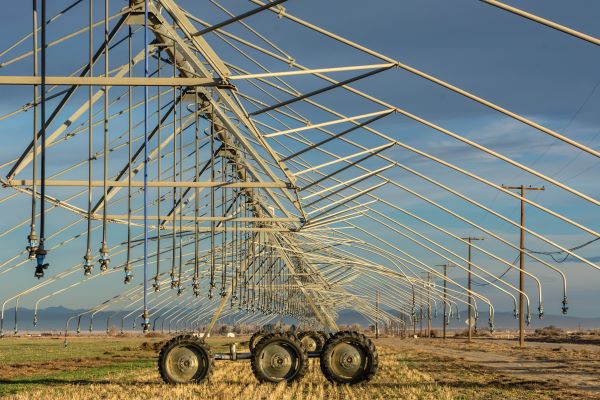Climate change-induced droughts have borne down on Africa over the last few years, leaving millions of people in famine without safe drinking water or proper sanitation. The impacts have been particularly dire on the continent’s agricultural sector.
Few can overstate the importance of water conservation — farmers must have ample resources to irrigate crops and produce yields to feed a hungry population.
Here is everything you should know about the plight of water in Africa and various conservation methods its agricultural industry can deploy.
The Trickling Effects of Water Scarcity
The Horn of Africa is experiencing an unprecedented drought. Researchers even suggest it’s Kenya, Ethiopia and Somalia’s worst drought in 40 years, putting 22 million people at risk of starvation and displacing another 1.1 million.
Africa’s water crisis isn’t new. In fact, 19 African nations make up the top 25 countries worldwide without suitable drinking water — three out of four Africans lack access to clean water resources.
Droughts and low water reserves have also killed off millions of crops and livestock across the continent, spelling trouble for Africa’s food supply. The number of Africans reporting acute hunger has climbed from 51 million to 82 million from 2021 to 2022 — a 60% increase.
Scientists have previously studied the association between drought and crop production in West Africa. Between 2000 and 2009, climate change led to a 10%-20% reduction in millet yields and a 5%-15% decrease in sorghum.
The same study used model simulations to predict an 8% crop loss throughout Africa and an 11% crop loss in West Africa by the 2050s.
Fortunately, these forecasts don’t take adaptation into account. African farmers can prevent this dire situation from becoming a reality by deploying different water conservation methods and sustainable irrigation.
Water Conservation Techniques
The global agricultural sector has worked tirelessly to develop water conservation techniques in response to the crisis. The latest methods may be essential for African farmers to preserve crop health and meet the demand for food.
Demand is rising. Models suggest that Africa’s population will double to 2.5 billion in the next 30 years. Meanwhile, the continent’s urban population will likely triple within the next 40 years. As such, more people will be desperate for food and water resources.
Sustainable irrigation methods have included strategies like planting drought-tolerant crops and drip irrigation. Drip irrigation produces a slow drip of water directly onto the plant roots, saving 20%-50% of the water used in conventional irrigation and significantly diminishing runoff and surface evaporation.
Green water production, such as water harvesting, has also benefited small-scale farms. In Kenya and Tanzania, where water shortages are most prevalent, crop yields have increased from 1 ton per hectare to 3-4 tons due to successful water harvesting.
Planting pits are another technique in African agriculture in which farmers sow small plant groupings in a recessed area that catches rainwater. Containing water in the pit ensures continuous root moisture for sufficient yields.
Naturally, investments in African agriculture go a long way to securing the food supply. Government-funded and private support in irrigation technologies, water catchment systems and other sustainable farming resources will pave the way for Africa to achieve long-term growth.
Integrating free training programs for farmers to expand their expertise in agricultural water conservation could also prove effective. There’s an increasing need for more knowledge about sustainable farming.
Finally, mobile applications that predict weather conditions are a simple, cost-efficient solution to help farmers prepare for impending climate variability so they can respond accordingly.
African Agriculture Depends on Water Resources
Water is a necessary resource for survival. People must have access to clean, safe drinking water while indirectly benefiting from its role in crop production. African farmers should deploy conservation solutions to store enough resources for irrigation. In return, they’ll be able to produce enough crops to feed hungry people.

Jane is an agriculture and environmental journalist and the founder and editor-in-chief of Environment.co, where she covers sustainability and eco-friendly living.









